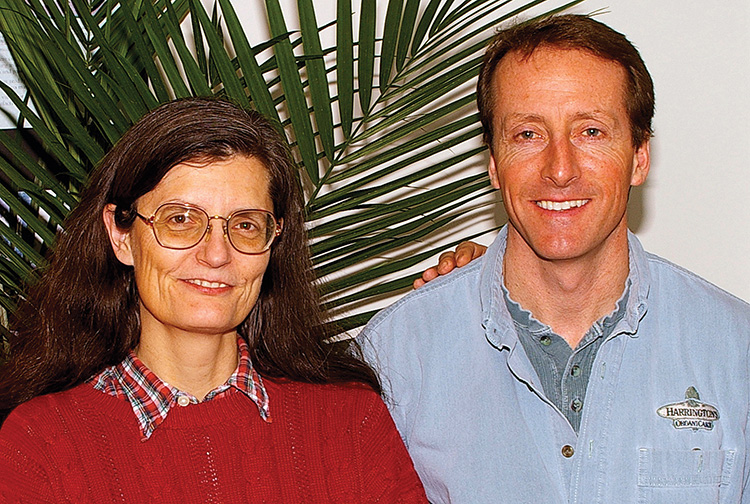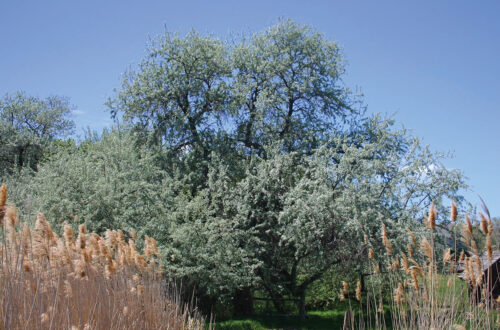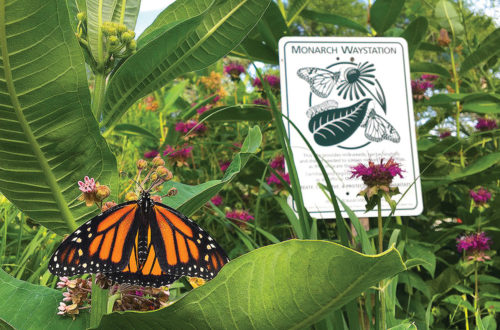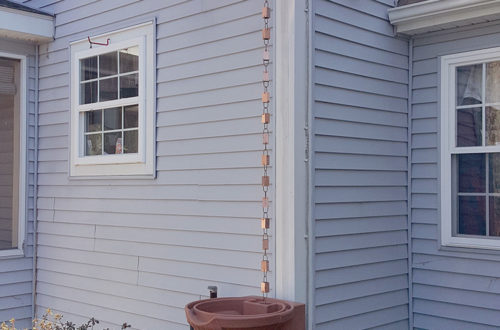By Will Rowlands
NOV-DEC 2018 – Todd Harrington is the owner and driving force behind Harrington’s Organic Land Care in Bloomfield.
Todd grew up in Canton and worked for his father’s commercial landscape company after school and on weekends. He studied mechanical engineering at UConn for two years and then took a few years off to work for tree care companies. After resuming his studies at UMass, he received a degree in arboriculture and forestry.
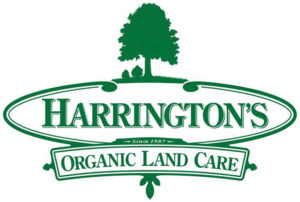
He started a tree care division for his father’s business in 1987. Three years later he started his own business, Organicare. In 1997, he changed the name to Harrington’s Organicare and then again to Harrington’s Organic Land Care in 2005.
After realizing other businesses were marketing organic lawn care but still using chemicals, he decided to get more proactive and helped pen the NOFA Standards for Organic Land Care in 2001 and the NOFA Organic Lawn and Turf Handbook in 2007, the first of their kind in the country.
“Todd is very knowledgeable, he’s developed the concept and applied it in real world situations to make organic land care work. He is a real pioneer in this field.”
– Dr. Elaine Ingham, Soil Food Web Inc.
An Eye-Opening Day at Harrington’s
Anne and I spent the better part of a day with Todd after we took over Connecticut Gardener in 2010. We both learned a lot and were impressed.
Todd’s Bloomfield facility has a high-tech lab for analyzing soil … they can do everything from basic soil testing to full chemical and biological analysis, including active bacteria, active fungi and mycorrhizal colonization. Part of the building seemed to us, at the time, more like a mad scientist’s laboratory.
I came away from that meeting with a ton of notes and some new words and processes to research. It was obvious that Todd was on the cutting edge.
I credit him with changing the way I think about soil, an overlooked resource about which most of us know almost nothing. As Leonardo Da Vinci reportedly said, “We know more about the movement of celestial bodies than about the soil underfoot.”
An Expert in the Field
Todd is a recognized expert in organic plant care and consults internationally. He co-authored the nation’s first organic land care standards and has taught in the Northeast Organic Farming Association’s (NOFA) Accreditation Course in Organic Land Care since 2004. His work has even been used as the basis for legislation.
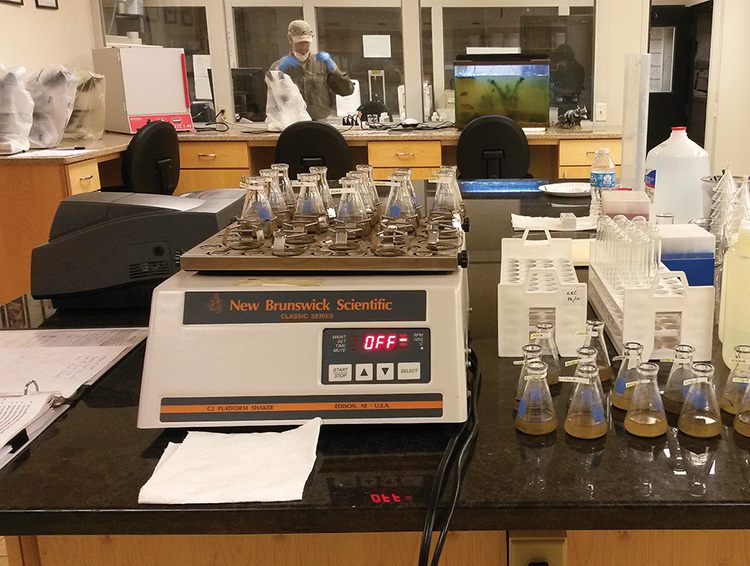
Harrington’s lab is certified by Soil Food Web Inc. (soilfoodweb.com) and Todd has a long-standing affiliation with its founder, Dr. Elaine Ingham, one of the world’s pre-eminent soil microbiologists.
“Our passion lies in educating and teaching people and businesses how to transition from dependence on synthetic chemicals to organic and sustainable programs.”
– Todd Harrington
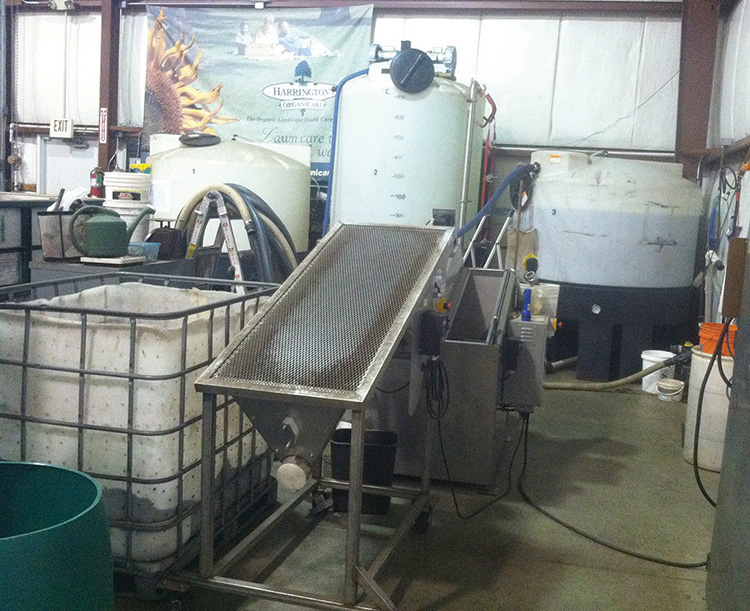
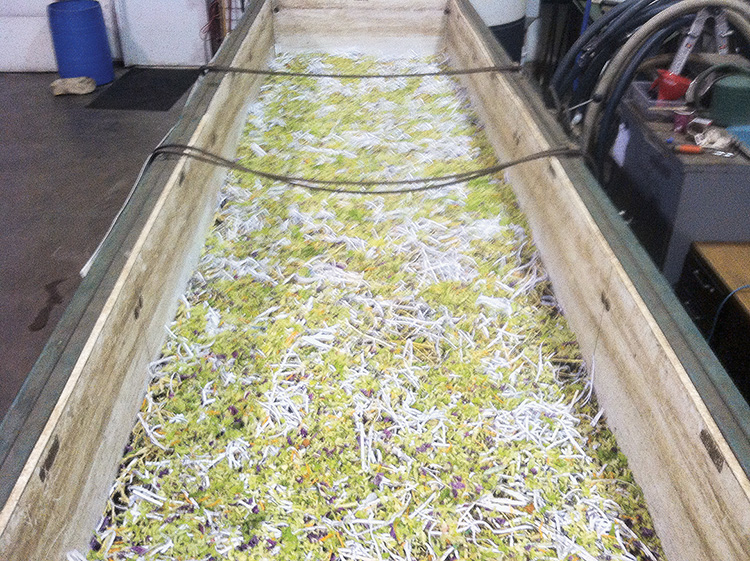
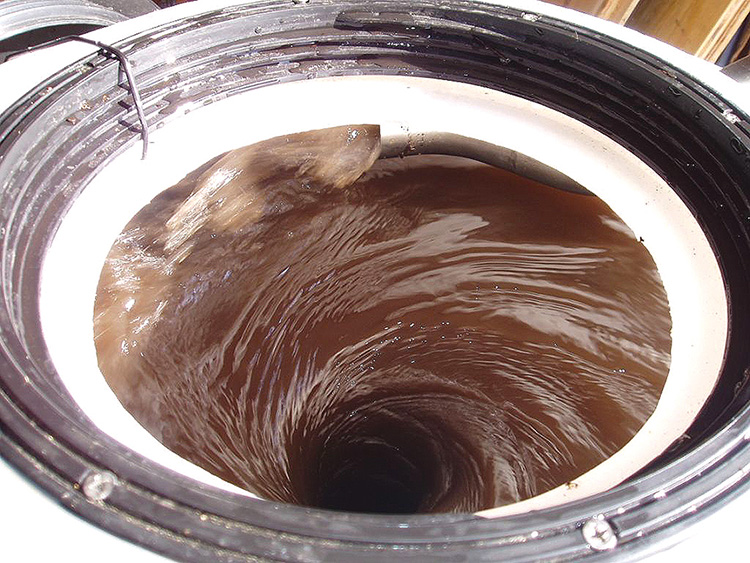
Custom-made Products
Harrington’s offers a wide variety of products made at their Bloomfield
facility:
• Natural granular fertilizers
• Natural amendments for soil conditioning and fertility
• VermaGrow™ blends for compost teas and soil amendment
• Liquid Compost Extract
• Starter kits for brewing compost tea
Harrington’s tests all of their products so they know what you’re getting.
They’ll address your tick, vole and snakeworm issues and even build and maintain your raised beds. They also offer products, services, training and equipment for organic land care professionals.
Organic Land Care
The lesson here is that not only can organic land care work, it doesn’t have to cost an arm and a leg … if you know what you’re doing. Some of the solutions Todd comes up with are surprisingly simple and economic. The trick is in seeing the big picture and knowing how everything interacts.
In fact, Todd is so good at what he does that he can sometimes walk on to a site and, knowing what the soil lacks, find the necessary additives (e.g., logs or woodchip piles) nearby.
There are a number of good reasons for adopting an organic approach. It’s obviously healthier but, according to Harrington, can be cheaper in the long run. He points out that chemicals supply a quick fix that ultimately results in addicted plants and poor soil.
“The solution is science,” he says. Unfortunately, transitioning from a chemically dependent landscape can take time. The interrelationships between soil chemistry, soil morphology and living organisms are complex. That’s part of the journey.
A New Way of Thinking
Going organic, particularly as far as lawns are concerned, means forgetting about immediacy and rethinking expectations. The results, however, can be personally rewarding as well as better for the ecosystem.
If you don’t want to put in a lot of time, effort and money – and aren’t aiming for a “perfect” lawn – you can always opt for a low-maintenance freedom lawn.
Probiotics for Plants?
Medical doctors are beginning to understand the importance of gut flora to human health. The same can be said of soil … a biodiverse soil is essential to the health of plants.
Interested? Every spring Harrington’s offers a Soil Food Web master class. Visit them at harringtonsorganic.com to learn more about their products, services and training.
